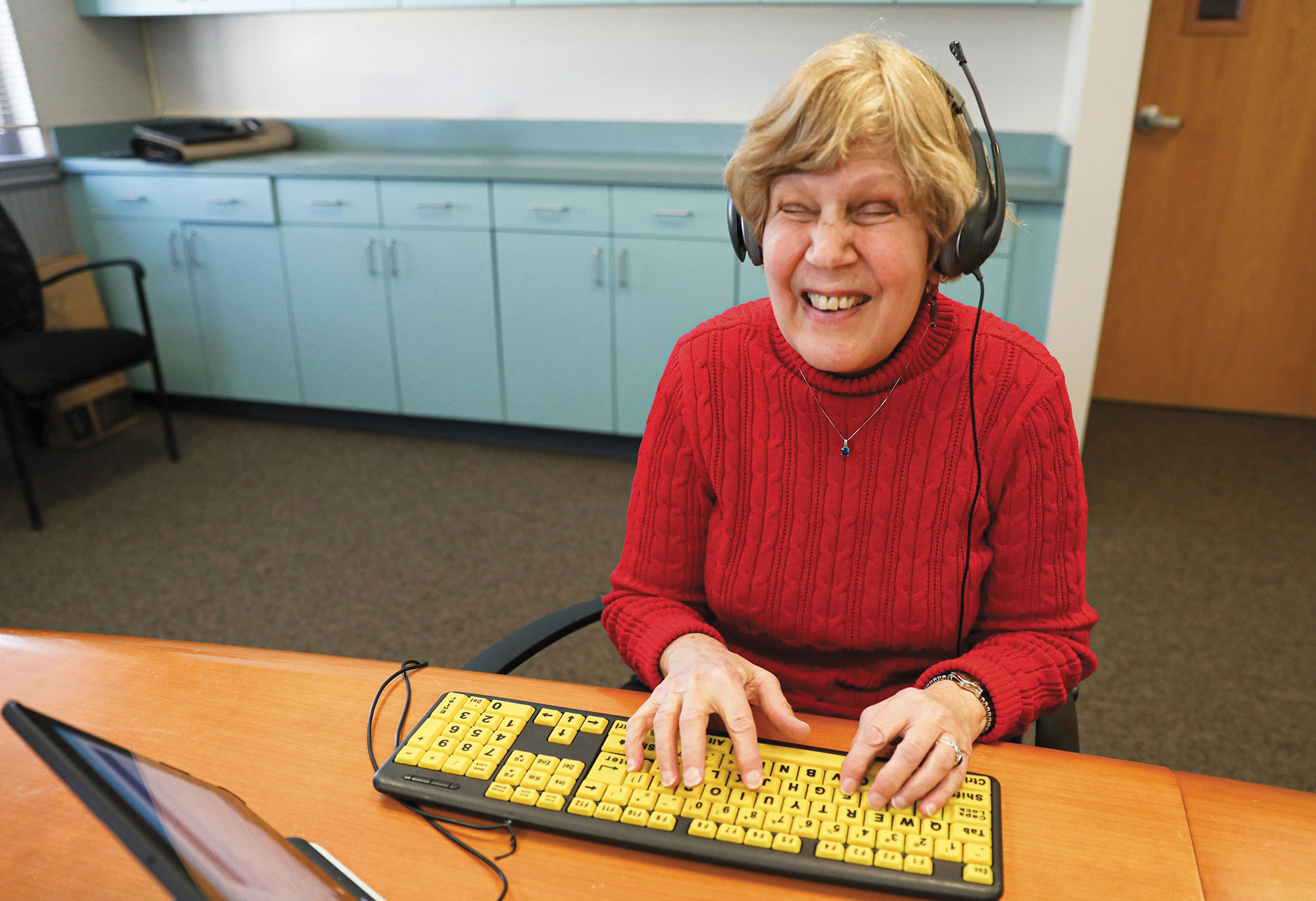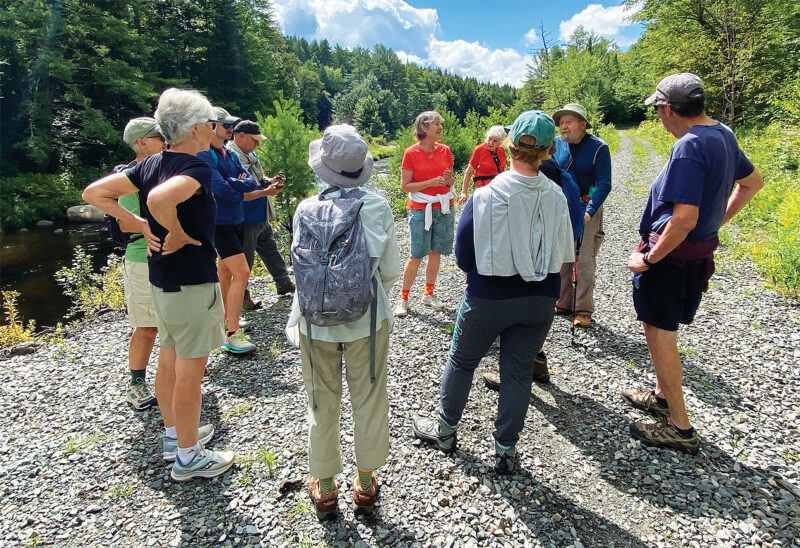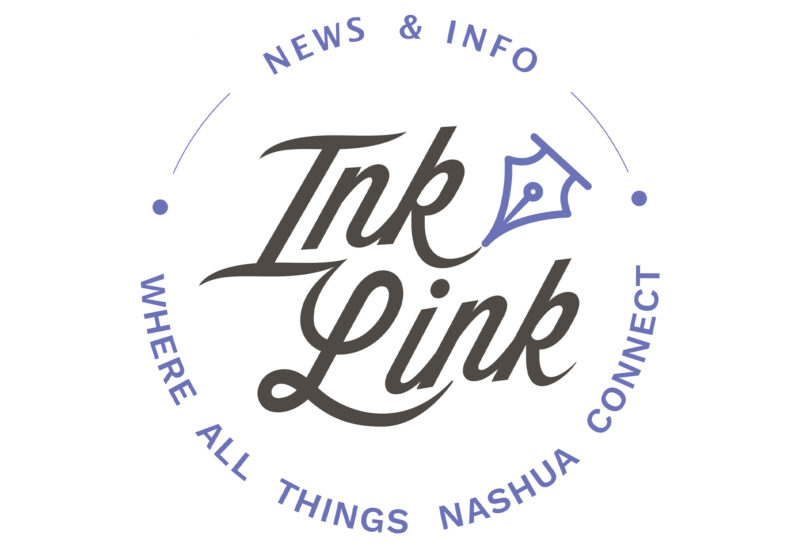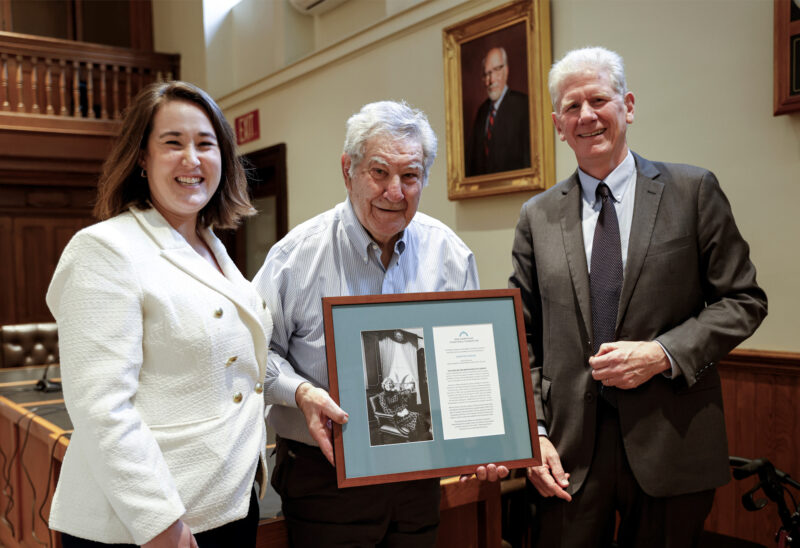Democracy depends on people participating. That is easier for some people than others.
Jean Shiner is blind. As a young voter, she had to bring someone into the polling booth with her to read the ballot aloud and mark it. Later, she used a fax system to cast her vote — but had to put the resulting slip of paper into a separate box to be counted, because the vote-counting machine could not read it. In neither case did she feel that her ballot was truly “secret.”
The Americans with Disabilities Act, passed in 1990, lowered some barriers at the polls. Improvements in technology lowered more.
For state and federal elections now, polling places in New Hampshire are equipped with a “One4All” voting system for people with blindness, vision impairment or other disabilities.
To feel confident about showing up at the polls and exercising their right to vote, though, people need to feel confident in using the technology.
Future in Sight, which works to advance independence for people who are blind and visually impaired, used a Foundation grant to pay for transportation to trainings so people could learn to use the voting system in advance of elections. Jean attended a training, learning how to adjust the volume and speed of speech in the headset, reminding herself how to use the right and left arrows on the keyboard to navigate through the ballot.
Jean has worked for years to lower barriers at the polls for people with blindness and vision impairment. Much work remains: While the state provides all New Hampshire polling places a “One4All” system for state and federal elections (which the state oversees) the vast majority of communities do not have such systems for municipal elections. (Municipal elections are overseen locally and the systems would need to be purchased and set up by communities, at municipal expense.)
Jean and others recently convinced the Town of Exeter, where she lives and votes, to purchase a tablet system for use in municipal elections.
“It really is about belonging,” Jean said. “People with disabilities want to participate in our community just like everyone else does.”











![Oluwakemi Olokunboyo of Dover received a McNabb scholarship to study nursing at Great Bay Community College [Photo by Cheryl Senter]](https://www.nhcf.org/wp-content/uploads/2024/05/Scholarship-Hero-800x548.jpg)
![Indrika Arnold, Senior Wealth Advisor, the Colony Group [Photo by Cheryl Senter]](https://www.nhcf.org/wp-content/uploads/2024/05/Indrika-Arnold-Hero-800x534.jpg)




![Rev. Heidi Carrington Heath joined Seacoast Outright. [Photo by Cheryl Senter]](https://www.nhcf.org/wp-content/uploads/2024/05/Heidi-Carrington-Thumbnail-800x548.jpg)
![Dr. Jennie Hennigar treats a patient at the Tamworth Dental Center [Photo by Cheryl Senter]](https://www.nhcf.org/wp-content/uploads/2024/05/TCCAP-Hero-800x548.jpg)
![Charitable Foundation President Dick Ober [Photo by Cheryl Senter]](https://www.nhcf.org/wp-content/uploads/2023/12/dick-ober-purpose-fall-winter-2023-800x548.jpg)